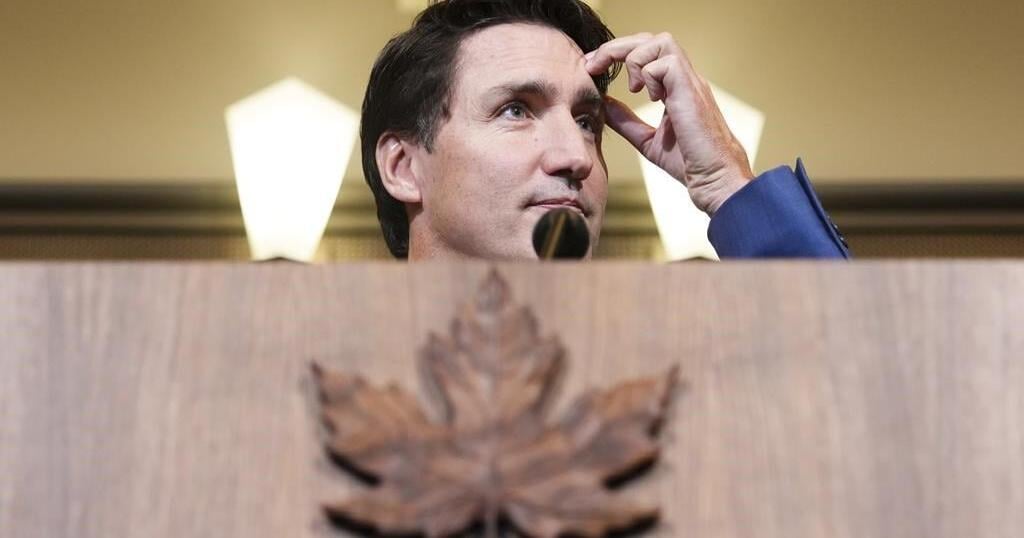OTTAWA – Several Liberal MPs are calling for a secret ballot vote on Justin Trudeau’s leadership after he made clear he isn’t going anywhere in spite of the calls from within his caucus to step down.
Two dozen members of caucus signed a letter that gave Trudeau until Monday to respond to their demand for his resignation as party leader.
The intent was to give the prime minister the weekend to reflect on what they had to say in a closed-door caucus meeting last week, where several Liberal MPs explained why they thought he should step aside, New Brunswick MP Wayne Long said.
But one day after that meeting, Trudeau was unequivocal about his plans to lead the party into the next election.
It appears that has not put an end to the dissent.
“We do continue to ask and push for a secret ballot,” Long said in an interview Monday.
“We think that once and for all, a secret ballot would put this to rest.”
There’s no mechanism for the Liberals to remove their leader against their will. There is also no way for MPs to force an anonymous vote on Trudeau’s leadership.
But it would help restore unity among the party’s elected ranks, said Patrick Weiler, a Liberal MP from British Columbia.
“It would change the discussion, because it would allow for people to be able to express how they feel without the fear of any repercussions,” he told The Canadian Press Monday. He said he believes significantly more Liberal MPs would vote for a change of leadership if given the opportunity to do so anonymously.
While the deadline has passed, Long said there were no plans among those Liberals who signed the letter to block government business in parliament or create unrest.
“Nobody wants to blow up the party. I mean, that was never the intent,” Long said, though he added he feels disappointed Trudeau didn’t take more time to reflect on how caucus is feeling.
Instead, he and others are thinking about their own future plans.
“I’m a Liberal and I’m a proud Liberal, but there’s also a time when I’m going to have to look in the mirror and say, ‘OK, what do I do here? How do I sit in a caucus where I don’t really agree with who’s leading that caucus?'” he said.
“That’s just something I think myself, and I think maybe a lot of other MPs are just going to have to decide for themselves over the coming day or week.”
The Trudeau government will be tested again on Tuesday when it comes up against another deadline, this one set by the Bloc Québécois.
The Bloc has asked the Liberals to speedily pass two pieces of legislation: one bill proposes to increase old-age security payments for seniors under 75 and the other would protect supply management in trade negotiations.
Bloc Leader Yves-François Blanchet said if the bills do not pass by Tuesday he would begin discussions with the other opposition parties about toppling the minority government.
The Bloc has so far voted against a pair of non-confidence motions put forward by the Opposition Conservatives during the fall sitting of Parliament.
The Tories have pledged to force more non-confidence votes in the future but likely would need the support of both the Bloc and the NDP to bring down the government and force an early election.
“The Bloc has received absolutely nothing from Justin Trudeau. Trudeau offered them nothing,” Conservative Leader Pierre Poilievre said at a press conference Monday.
“It’s time for the Bloc to work for Quebecers rather than working for Trudeau and vote for a carbon tax election.”
This report by The Canadian Press was first published Oct. 28, 2024.
